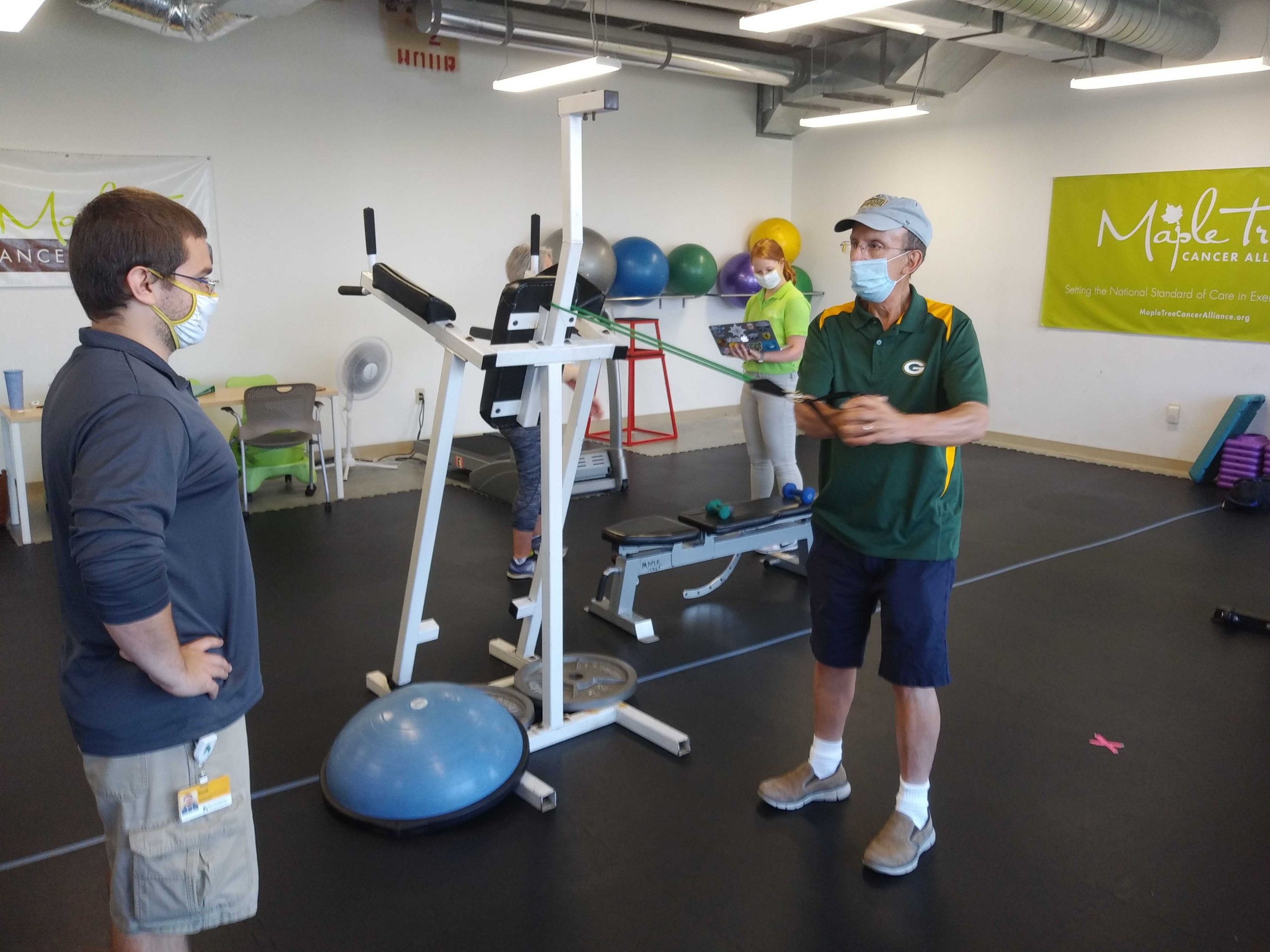Did you know that if you are a man, you have a 1 in 6 chance of developing prostate cancer? Prostate cancer is the most common cancer among men.
It is treated many different ways, depending on the severity of the cancer. Sometimes, it only requires active surveillance. Other times, surgery and radiotherapy are warranted. For the latter, hormone therapy is often administered in combination with these treatments.
Hormone therapy for prostate cancer is known as androgen deprivation therapy. Androgens are male hormones. As you might have guessed, androgen deprivation therapy reduces the amount of these hormones in the body.
Because prostate cancer cannot grow or survive without androgens, this form of treatment is highly effective at both slowing the tumor growth and reducing risk of cancer recurrence…making androgen deprivation therapy a very powerful form of treatment.
However, and unfortunately, there are adverse effects that commonly occur during androgen deprivation therapy.
Simply by reducing the levels of male hormones in the body, men tend to lose muscle mass. This leads to decreases in muscular strength, causing functional limitations, increases in fat mass, and fatigue.
Not only is physical health compromised, but mental health can be as well, especially if quality of life is negatively impacted.
But….if you’ve been following us for any length of time, you might already know what I’m going to say next…..
There is HOPE!
After all, Exercise is Medicine!!
A recent literature review of more than 1,200 research articles on this topic revealed that exercise can help!
This meta analysis found that exercise (specifically, resistance training) can significantly improve both upper and lower body muscular strength, increase exercise tolerance, and control body mass. Fatigue levels are also improved.

The American College of Sports Medicine recommends that cancer survivors get at least 150 minutes of moderate-intensity activity each week. Strength training should also be performed at least two times each week. This can be performed with weights, bands, machines, or even body weight exercises are helpful!
Be sure to start out slow as you are recovering from surgery. Start with light weights or resistance bands, and increase only as you are able to tolerate it. Ideally, you should work up to completing two sets of about 10-12 repetitions for each exercise, at an intensity that you would consider to be “somewhat hard”.
When beginning a resistance training program, focus on building lower body muscular strength and endurance. In particular, kegel exercises will help strengthen the pelvic floor, and hip extension exercises will help improve functional status.
Bottom line is that exercise can – and will – help you, if you are suffering from some of the negative effects of androgen deprivation therapy. Just start slow, progress as you are able, and don’t give up!
Check out our membership program on our website for more help! It is free to join – simply enter the code FREEFORALL at checkout!
Works cited:
Yunfeng, Gao et al. “Exercise overcome adverse effects among prostate cancer patients receiving androgen deprivation therapy: An update meta-analysis.” Medicine vol. 96,27 (2017): e7368.
Park J, Yoon DH, Yoo S, et al. Effects of Progressive Resistance Training on Post-Surgery Incontinence in Men with Prostate Cancer. J Clin Med. 2018;7(9):292. Published 2018 Sep 19.

